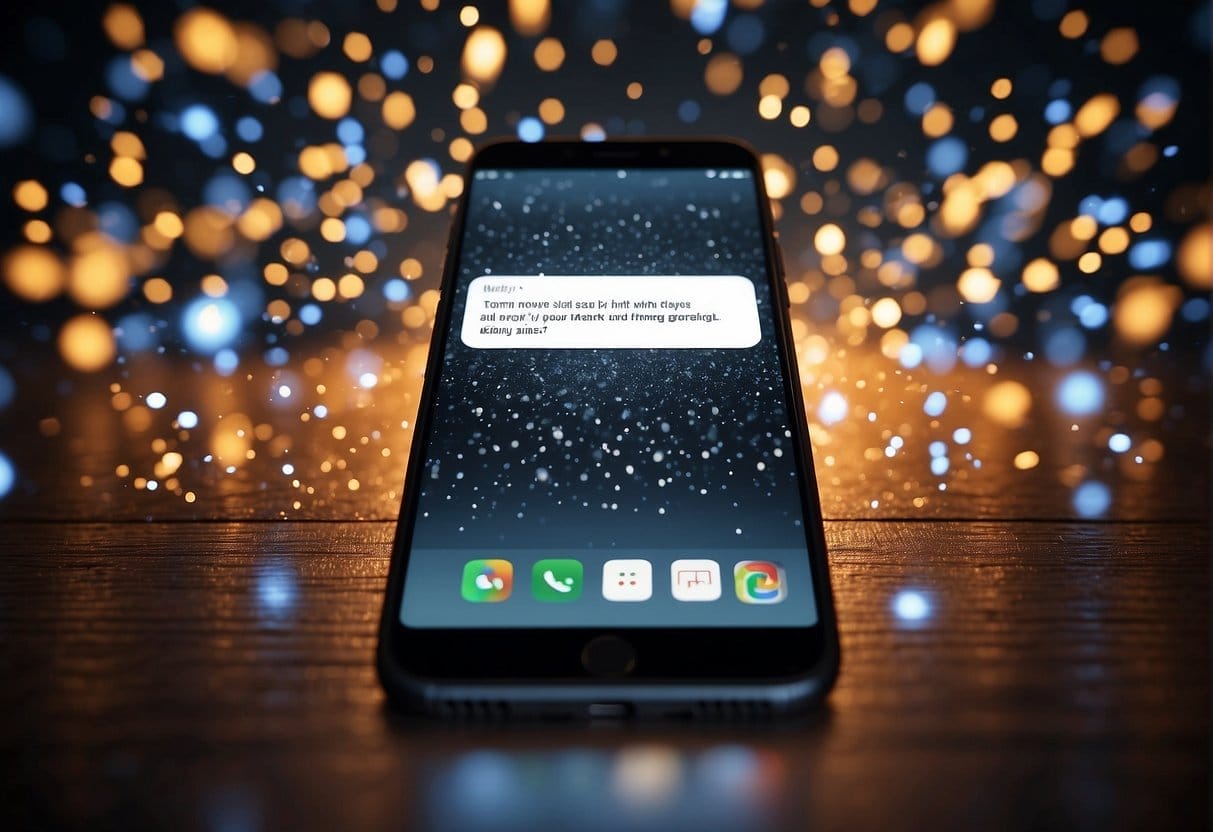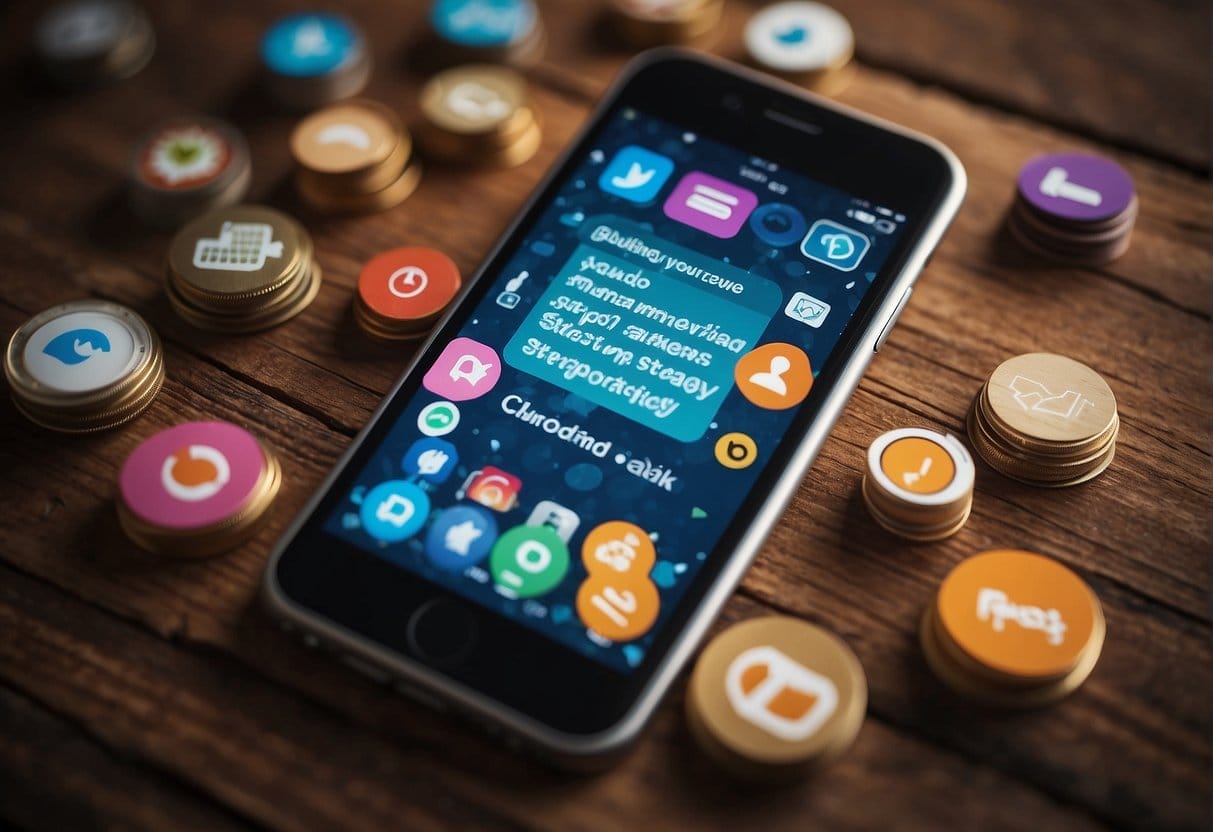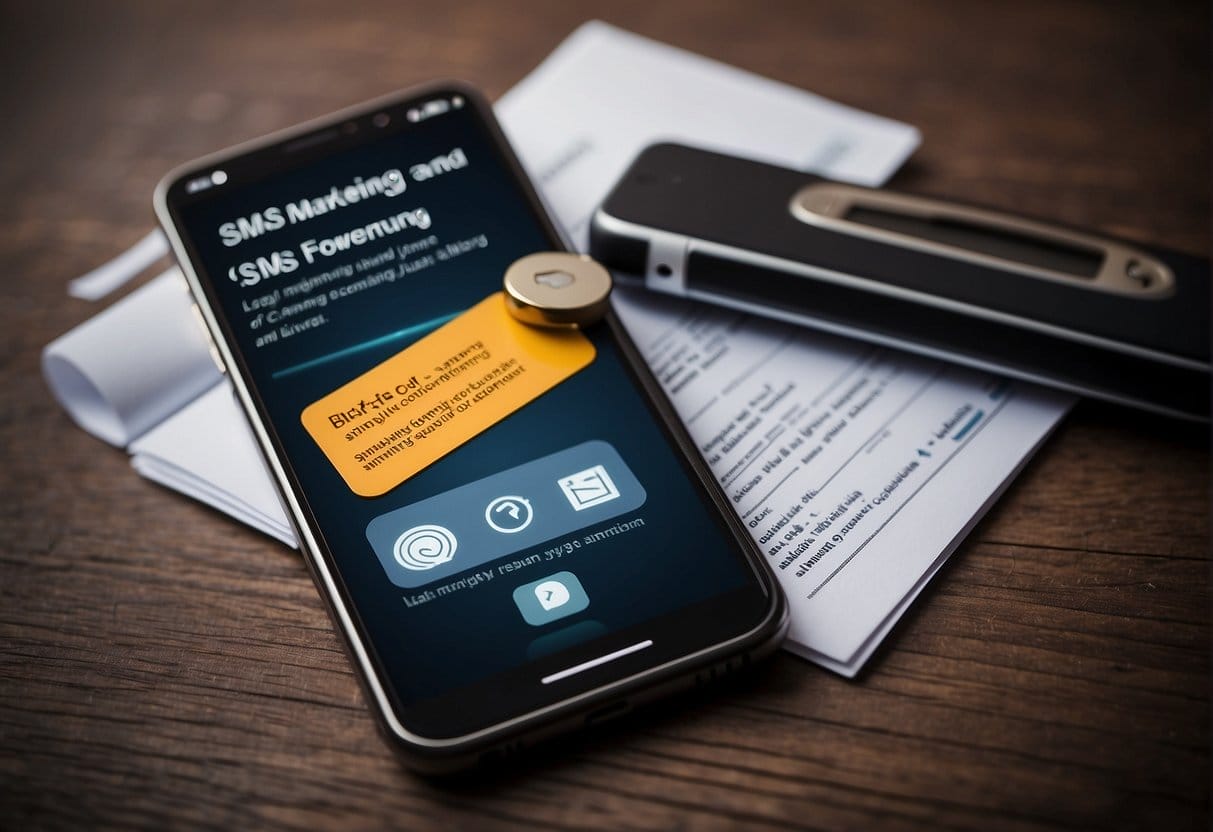SMS marketing stands as a robust channel that taps into the ubiquity of mobile phones by allowing businesses to reach their customers directly through text messages. Its effectiveness is rooted in the high open rates of text messages compared to other forms of digital communication, such as email. SMS marketing can be highly personalized, providing a direct link for marketers to deliver special offers, updates, and reminders to a receptive audience. Moreover, because SMS does not require an internet connection, it ensures accessibility even to those who are offline or have limited data plans.

Fundamentally, SMS marketing requires businesses to have explicit consent from recipients, making compliance a critical aspect of campaign strategy. Once consent is obtained, marketers can craft targeted, concise messages that drive customer engagement and action. Campaigns can range from simple text blasts to sophisticated, automated sequences triggered by customer behavior. The immediacy of SMS also provides a means to deliver time-sensitive promotions that create a sense of urgency and encourage quick responses.
To ensure effectiveness, it’s crucial to measure the impact of SMS marketing campaigns. Analyzing metrics such as delivery rates, open rates, and conversion rates assists marketers in refining their strategies for greater impact. Beyond just sending out messages, SMS marketing has evolved into an integrated approach using advanced techniques that work seamlessly with broader marketing goals.
Key Takeaways
- SMS marketing leverages high open rates of text messages for direct customer engagement.
- Compliance and customer consent are vital, underscoring the importance of a considered strategy.
- Continuous measurement and refinement of SMS campaigns are essential for success.
Fundamentals of SMS Marketing
Engaging customers through their mobile devices is a direct and effective method for businesses to communicate offers and updates. SMS marketing utilizes text messages for promotional campaigns, offering a personal touch in the digital marketing sphere.
What Is SMS Marketing?
SMS Marketing, or Short Message Service Marketing, involves sending promotional campaigns or transactional messages for marketing purposes using text messages (SMS). These messages are typically aimed at communicating time-sensitive offers, updates, and alerts to people who have consented to receive these communications from a business.
Benefits of Text Message Marketing
- Direct and Immediate Delivery: SMS messages are delivered straight to a recipient’s mobile device, often with a read rate of about 95% within minutes of sending.
- High Open Rates: Compared to email marketing, text messages tend to have higher open rates, ensuring that marketing messages are seen by the majority of recipients.
- Personalization: Marketers can personalize messages, which fosters a greater connection with the recipient.
- Wide Reach: Nearly everyone has a mobile device capable of receiving SMS, giving SMS marketing a broad audience.
SMS vs Email Marketing
- Open Rates: SMS messages have a significantly higher open rate than emails. On average, 95% of SMS messages are opened and read within three minutes.
- Content Length: An SMS message is limited to 160 characters, encouraging concise and targeted messaging. Email marketing allows for lengthier content and the inclusion of images and multimedia.
- Engagement: SMS marketing often yields higher engagement rates due to the immediacy and convenience of mobile messaging.
- Consumer Perception: Customers may perceive SMS as more personal and immediate, whereas emails can sometimes feel less urgent or be lost amongst spam.
SMS marketing demonstrates its effectiveness through concise, highly targeted messages and instant deliverability, distinguishing itself as an indispensable tool in the arsenal of digital marketing strategies.
Building Your SMS Marketing Strategy

Crafting an SMS marketing strategy involves meticulous planning and a deep understanding of customer behavior. Successful campaigns hinge on segmenting the target audience effectively, creating content that resonates, and meticulously setting goals coupled with robust metrics to measure performance.
Segmenting Your Target Audience
Segmentation is critical for ensuring messages reach the right individuals. Marketers should analyze customer data to identify distinct groups based on demographics, purchasing behavior, and preferences. For instance, they could tailor messages for those who have made repeat purchases differently from first-time customers. This targeted approach often results in higher engagement and conversion rates.
Creating Valuable Content
Content in SMS marketing must be concise and provide immediate value. Promotions and exclusive offers can generate a high click-through rate, while informative and relevant content can enhance open rates. Content should entice recipients to engage, whether it’s to visit a website, claim an offer, or participate in a feedback loop, thus fostering a two-way conversation and enhancing the response rate.
Setting Goals and Performance Metrics
Clear objectives must guide an SMS marketing strategy. These goals can range from increasing brand awareness to boosting sales. Performance is often tracked through metrics such as conversion rates, click-through rates, and response rates. Businesses must analyze these metrics to refine their strategy and optimize for better results continuously.
Using these focused strategies, organizations can harness the power of SMS marketing to effectively communicate with their target audience, foster engagement, and monitor the campaign’s efficacy through reliable performance indicators.
SMS Marketing Compliance and Consent

Compliance with the Telephone Consumer Protection Act (TCPA) and obtaining opt-in consent are critical to legal SMS marketing. Companies must also provide clear opt-out mechanisms for subscribers wishing to unsubscribe from messaging services.
Understanding TCPA and Opt-In Consent
The TCPA sets strict guidelines to protect consumers from unwanted solicitations via SMS. Ensuring compliance requires businesses to obtain opt-in consent before sending promotional messages. Consent must be given explicitly by the recipient, and evidence of this consent should be recorded and stored. This includes the date, time, method of consent, and any identifying details. As outlined in Must-Know SMS Marketing Regulations in the U.S., consent eliminates confusion and sets a clear expectation for communication.
- Explicit consent can be gathered in several ways, such as:
- Agreeing to receive messages through verbal confirmation
- Sending a text message to a specified short code
- Checking a consent box on a digital form
Managing Unsubscribe/Opt-Out Requests
The TCPA also mandates that companies respect unsubscribe or opt-out requests promptly. A clear and easy opt-out method should be presented in each SMS marketing message. When receiving an opt-out request, the sender must ensure that no further messages are sent to the number associated with the request. Per Guide to U.S. SMS Compliance, businesses should confirm the opt-out with a final message not intended for marketing, to reduce the risk of legal issues and maintain customer trust.
- The opt-out process typically includes:
- Replying “STOP” to a text message
- Clicking an unsubscribe link in a message
- Contacting customer service to remove a phone number from the list
SMS Campaign Execution
Executing SMS campaigns requires meticulous planning and execution. Critical elements include crafting succinct and impactful messages, determining the right timing and frequency, and integrating personalization to heighten customer engagement.
Crafting Effective Messages
Effective SMS campaigns hinge on the clarity and relevance of their messages. Each message should be concise, typically under 160 characters, due to the limitations of SMS formatting. It’s imperative to include a clear call-to-action (CTA), making it straightforward for recipients to understand the desired outcome, whether it’s accessing a sale or confirming an appointment. For example, a message might prompt customers to “Text ‘YES’ to receive exclusive deals.” It is also essential to ensure that the tone resonates with the brand and appeals to the target audience.
Timing and Frequency of SMS Campaigns
The timing and frequency of messages can significantly affect the success of an SMS campaign. Messages should be scheduled during reasonable hours to avoid inconveniencing customers. Typically, sending one to two messages per week suffices to maintain engagement without causing annoyance. Campaigns can incorporate automated workflows to consistently send out messages at optimal times.
Personalization and Customer Engagement
Personalization can dramatically improve customer engagement in SMS campaigns. Using customer data to tailor messages, such as including a recipient’s name or referencing their past purchases, fosters a more personal connection. Additionally, segmentation can be employed to target specific groups within the audience more effectively. As engagement increases, so does the potential for conversions and customer loyalty.
Marketing Automation and Technology
In the realm of SMS marketing, employing advanced technology and automation is essential to deliver personalized messages efficiently. Choosing the most suitable software, ensuring seamless integration with other digital marketing channels, and leveraging artificial intelligence are pivotal steps for a successful strategy.
Choosing the Right SMS Marketing Software
When selecting an SMS marketing software, it’s important to assess whether the platform offers comprehensive automation capabilities to tailor campaigns. For instance, platforms like Freshmarketer provide an all-in-one solution that helps businesses to automate and personalize SMS marketing outreach, which can be essential for engaging customers in conversational tones that mimic natural language. Key features to consider include ease of use, scalability, and the ability to segment audiences for targeted messaging.
Integrating SMS with Other Channels
Integration is a non-negotiable component of a robust digital marketing strategy. Marketers should look for platforms that allow SMS to work in concert with other channels—such as email—enabling cross-channel marketing campaigns. Tools like Mailchimp, which is highly regarded for email marketing, now also support SMS marketing, acknowledging that integration can lead to more cohesive and effective outreach.
Automation and AI in SMS
Incorporating automation and AI into SMS marketing enables businesses to engage in timely, relevant communication without manual intervention. By leveraging triggers and AI-based tools, messages can be deployed when they’re most likely to be read and acted upon. Platforms like Sendlane excel at automating tasks such as sending promotional offers or personalized greetings. Additionally, the use of natural language processing enables businesses to create messages that resonate more deeply with customers, fostering a rapport akin to conversational human interaction.
Measuring SMS Marketing Success
Effective SMS marketing hinges on understanding the data behind each campaign. By meticulously analyzing results, optimizing messages, and engaging in continuous A/B testing, marketers can improve their strategies and achieve a significant return on investment (ROI).
Analyzing SMS Campaign Results
Companies gain insight into campaign performance by examining key performance indicators (KPIs). Metrics such as open rates and response rates are indicative of customer engagement. By utilizing analytics tools, they can track delivery rates and click-through rates (CTR), which provide a clearer picture of the campaign’s effectiveness. For instance, an SMS with a high open rate but a low response rate might suggest compelling content but a weak call-to-action.
Optimizing SMS for Better Performance
Optimization is a consistent effort to refine SMS marketing strategies. Marketers should focus on crafting messages that resonate with their target audience. This includes precise language, timing of messages, and personalization. Assessing the ROI of messages and campaigns allows businesses to allocate their resources effectively, ensuring that every message sent contributes to the overall marketing goals.
A/B Testing and Continuous Improvement
A/B testing is a critical component of SMS marketing, allowing marketers to test various elements of their messages. They can experiment with different calls-to-action, content lengths, and delivery times to understand what drives customer action. Continuous improvement through systematic testing ensures that campaigns are not just a one-time success but evolve with audience preferences and market trends. Iterative testing is vital for sustained performance and better engagement metrics over time.
Best Practices and Tips for SMS Marketing
Effective SMS marketing requires a balance of concise communication and respectful engagement. Below are fundamental practices and tips to help enhance the performance of text message campaigns.
Writing Clear Calls-to-Action
Crafting clear calls-to-action (CTAs) is vital in SMS marketing. Each message should lead the customer to a specific action, such as redeeming an offer or visiting a sale page. For instance, “Get 20% off your next purchase with code SAVE20 – Shop Now!” directly instructs the recipient on what to do and the urgency behind it.
Managing Customer Relationships Through SMS
SMS is a powerful tool for managing customer relationships, fostering loyalty, and encouraging repeat sales. Personalized messages that celebrate milestones or offer birthday discounts can make customers feel valued. Similarly, a quick SMS survey can glean customer preferences, helping tailor future communications.
Staying Relevant and Not Intrusive
Maintaining relevance in messaging involves sending texts that are timely and of interest to the recipient. Avoid being intrusive by keeping the frequency of messages reasonable and ensuring content is aligned with the customer’s interests or past purchases. Discounts should be meaningful, and not just a pretext for contact. It is essential to remember that the aim is to add value, not to overwhelm.
Advanced SMS Marketing Techniques
In the realm of SMS marketing, leveraging emerging techniques can differentiate a successful campaign from a stagnant one. Businesses utilizing advanced strategies can enhance customer engagement and bolster sales.
Leveraging Ecommerce and SMS
Ecommerce businesses can integrate SMS to create a holistic shopping experience. Utilizing platforms like Shopify, they can send personalized product recommendations, abandoned cart reminders, and exclusive promotional offers. This approach helps maintain customer connection through the entire shopping journey, from browsing to checkout.
- Abandoned Cart Reminders: Send a message within 24 hours of cart abandonment to encourage completion of the purchase.
- Product Recommendations: Use purchase history to send tailored suggestions, increasing the likelihood of additional sales.
Transactional Messages and Alerts
Transactional SMS are pivotal for keeping customers informed. They facilitate a smooth post-purchase process by providing order confirmations, shipping updates, and delivery notifications. This consistent communication builds trust and encourages repeat business.
- Order Confirmations: Immediately confirm purchases, providing customers with assurance and order details.
- Delivery Notifications: Inform customers of their delivery’s progress, offering real-time updates and reducing support inquiries.
Special Events and Flash Sales
Flash sales and special event promotions can generate urgent engagement and a surge in sales. These time-sensitive offers create a compelling call-to-action, prompting immediate responses from customers.
- Limited-Time Offers: Announce flash sales with a clear deadline to instill a sense of urgency.
- Exclusive Access: Reward loyal customers with early access to special offers, enhancing their value perception.
By adopting these advanced SMS marketing techniques, companies not only foster a dynamic relationship with their customers but also drive tangible results in their sales and customer loyalty metrics.
Case Studies and Success Stories
SMS marketing has proven its effectiveness time and again through numerous case studies and success stories. This section explores both the triumphs and shortcomings found in SMS campaigns, offering ecommerce marketers valuable insights.
Examples of Effective SMS Marketing Campaigns
Game of Thrones: One compelling success story is the Game of Thrones SMS campaign. The series leveraged SMS to reach millions of fans, pairing its massive viewership with a marketing channel that directly engages consumers.
Pottery Barn: Pottery Barn effectively uses SMS to notify customers about new deals, share delivery updates, and announce in-store events.
Learning from SMS Marketing Failures
Ecommerce marketers can draw lessons from less successful SMS campaigns that were met with frustration and high unsubscribe rates. In contrast to potent strategies that lead to engagement, poorly executed campaigns highlight the delicate balance necessary in SMS marketing.
Anonymity in SMS marketing failures is often maintained for reputational reasons, but case studies examining ineffective practices underscore the importance of timing, message frequency, and content relevance.
Frequently Asked Questions
SMS marketing leverages direct messaging to enhance customer experience and boost sales. It’s pivotal for businesses to understand the nuances of text messaging for commerce.
How can SMS marketing software enhance customer engagement?
SMS marketing software allows businesses to send targeted, personalized messages, which can foster stronger relationships and encourage immediate customer action. The software offers capabilities like scheduling and automation, making it easier to reach consumers with relevant information at optimal times.
What are some effective SMS marketing strategies for e-commerce platforms?
For e-commerce platforms, text messages that offer exclusive discounts, flash sale notifications, and cart abandonment reminders have proven to be effective in driving sales. Additionally, personalization and segmentation strategies can lead to higher engagement and conversion rates.
What are the legal considerations to keep in mind with SMS marketing?
SMS marketing is subject to regulations, such as obtaining explicit consent from recipients and providing clear opt-out instructions in every message. Compliance with the Telephone Consumer Protection Act (TCPA) and other local regulations is mandatory to avoid legal repercussions.
How does SMS marketing compare in effectiveness to other digital marketing tactics?
SMS marketing typically boasts higher open and response rates compared to email and other digital channels, attributable to the personal and immediate nature of text messaging.
What are the common pricing models for SMS marketing services?
Pricing models often vary; some SMS marketing services charge per message, while others offer monthly plans based on the number of messages or contacts. Factors like message length and required features can also affect the cost.
Can you provide examples of successful SMS marketing campaigns?
Successful campaigns often involve timely, relevant offers with a clear call to action. For instance, a campaign that sends a discount code to customers on their birthdays can create a personalized experience that may improve brand loyalty and increase sales.


